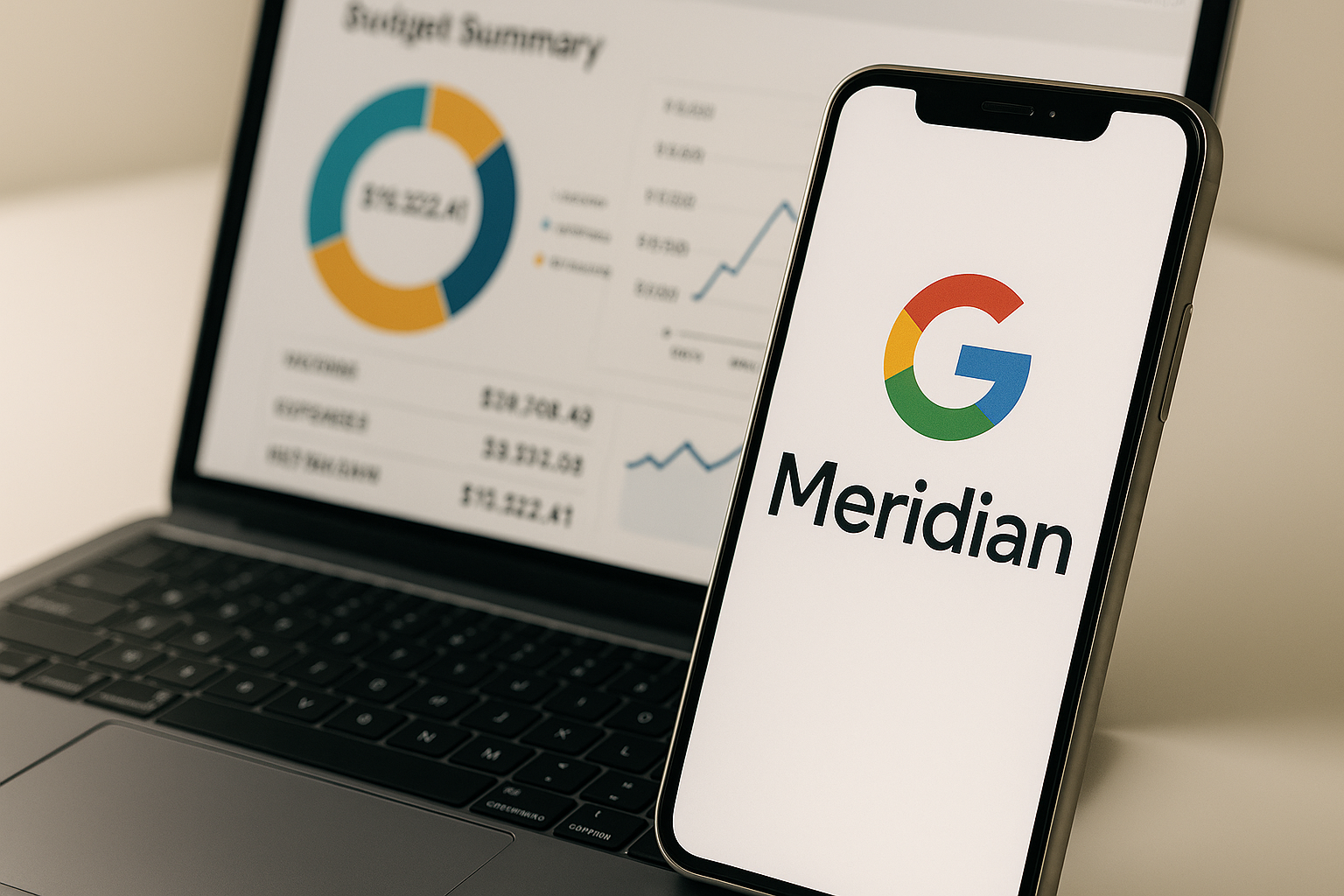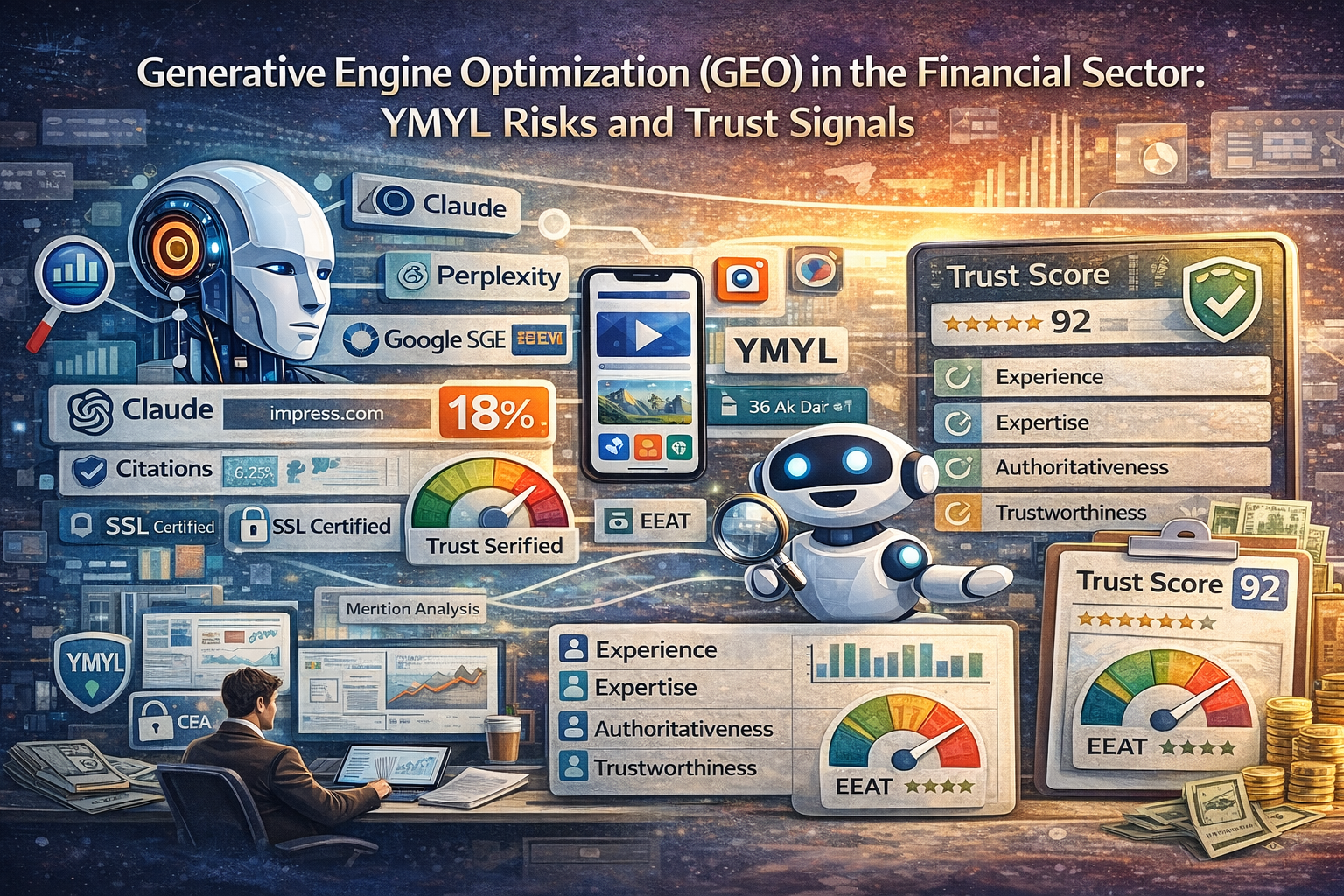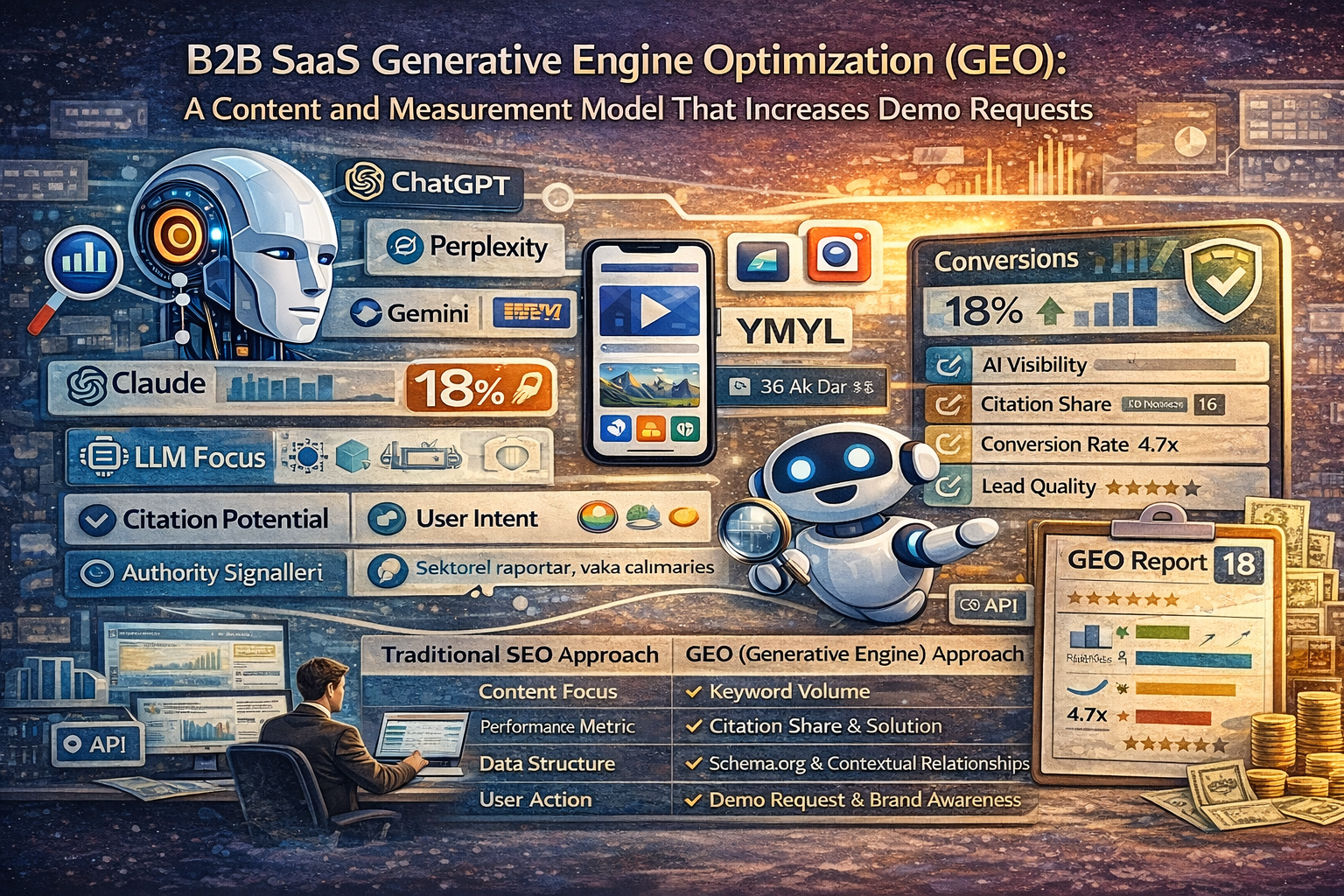
Fevzican Randa
Nov 11, 2025Data-Driven Budget Management with Google Meridian Integration

As digital marketing investments keep growing, brands want proof that every dollar actually drives outcomes. It’s no longer enough to ask “which channel got more clicks?”—the real question is: which channel contributed most to sales, revenue lift, or brand equity? This is where data-driven budget management comes in. Google’s open-source solution, Google Meridian, was built for this shift—moving decisions from intuition to analytics. With Meridian you can measure marketing spend, optimize budgets, and see channel-level ROI with clarity.
What is Google Meridian?
Google Meridian is a Marketing Mix Modeling (MMM) tool designed to quantify the impact of marketing investments. Unlike user-level measurement (e.g., cookies), Meridian operates on aggregate data, making it privacy-resilient and cookie-independent. It analyzes historical marketing activity to estimate each channel’s contribution to sales and revenue, then produces an actionable roadmap for channel reallocation. Budgeting shifts from guesswork to measurable strategy.
Why Data-Driven Budgeting Matters
Each channel influences the conversion journey differently. TV may build reach and mental availability; digital channels can trigger intent and purchase. Measuring their combined, interacting effects is hard without robust modeling. Data-driven budgeting resolves this complexity with statistical rigor.
- True ROI measurement: Quantifies the incremental return of every channel.
- Channel interaction analysis: Reveals synergies across TV, Social, Search, Influencer, etc.
- Forward scenarios: Answers “What if we increase Social by 20%?” with concrete projections.
- Strategic allocation: Shifts budget toward the most efficient marginal returns.
Backed by tools like Google Meridian, data-driven budgeting delivers higher performance and lower wasted spend through smarter, evidence-based campaigns.
Google Meridian Integration: Step-by-Step
1) Data Preparation
Model quality depends on data quality. Start by consolidating clean, complete datasets:
- Channel-level spend, impressions, clicks, and conversions.
- External factors (weather, seasonality, promos, competition, macroeconomy).
- Load data into Google BigQuery (or an equivalent data warehouse).
2) Modeling
Meridian uses a Bayesian modeling approach to learn from historical patterns and estimate each channel’s incremental effect on sales. It produces ROI response curves (diminishing returns) that visualize saturation points—making it obvious where additional spend still pays off and where it doesn’t.
3) Budget Optimization
Once the model is calibrated, Meridian proposes budget plans under different constraints:
- Fixed-budget scenario: Keep total spend constant; optimize cross-channel allocation.
- Flexible-budget scenario: Vary total spend to maximize overall ROI.
This answers the classic question: “Where should I spend the next dollar?”
4) Monitoring & Refresh
MMM is not one-and-done. As market conditions, campaign tactics, and consumer behavior evolve, refresh the model with new data and iterate allocations. This continuous loop sustains performance gains over time.
Strategic Tips for the Türkiye Market
- Include local seasonality: holidays, mega-sale periods, back-to-school windows.
- Jointly model TV + Digital where linear & CTV still matter for reach.
- Continuously validate data completeness and fix gaps early.
- Align Marketing, Finance, and Analytics around a shared data culture and taxonomy.
Conclusion
Data-driven budget management is a competitive edge in modern marketing. Google Meridian operationalizes this edge with open-source, privacy-resilient MMM. Implemented correctly, it clarifies how much to invest in each channel and when. Beyond explaining the past, Meridian simulates smart future budget scenarios. It’s time to decide with data—not hunches. Optimize spend, lift ROI, and see the true value of every ad investment.
FAQ
Does Meridian require user-level data?
No. Meridian works on aggregated signals, so it’s resilient to cookie restrictions and privacy changes.
How often should we refresh the model?
Typically quarterly, or after major market shifts, significant promotions, or large channel strategy changes.
Can Meridian handle offline media like TV or OOH?
Yes. MMM naturally incorporates offline and online channels alongside external factors (seasonality, macro, competition).
What do “diminishing returns” and “saturation” mean here?
They describe how incremental ROI falls as spend increases beyond the efficient range for a channel—Meridian’s response curves visualize this.
More resources

Generative Engine Optimization (GEO) in the Financial Sector: YMYL Risks and Trust Signals
With the integration of artificial intelligence technologies into the search engine ecosystem, the t...

B2B SaaS Generative Engine Optimization (GEO): A Content and Measurement Model That Increases Demo Requests
The digital marketing world is undergoing a major evolution from traditional search engine optimizat...

What Is a Source Term Vector?
A Source Term Vector is a conceptual expertise profile that shows which topics a website is associat...

